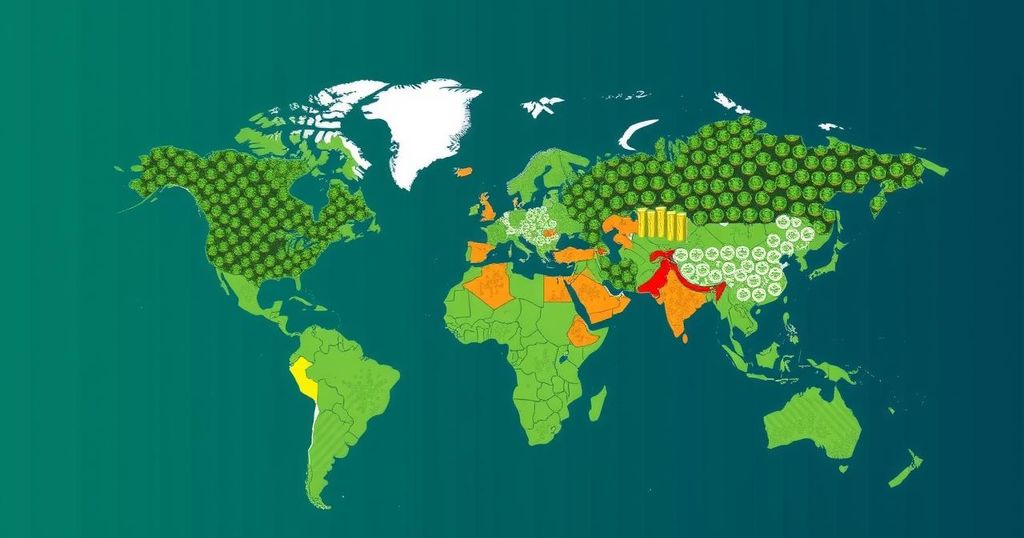The ASCOR study highlights that wealthy nations are failing to meet climate goals, with insufficient policies and financial contributions undermining global efforts against climate change. Investors express the need for credible action, while some countries make progress, contrasting with the broader trend of inaction among affluent nations.
A recent study by the Assessing Sovereign Climate-related Opportunities and Risks Project (ASCOR) indicates that wealthy nations are insufficiently addressing climate change as they fall short of emissions reduction goals necessary to align with the 1.5°C target set for 2030. An analysis of 70 developing and developed nations reveals a lack of substantial commitment from affluent countries in combating climate change despite the rising temperatures that threaten to push global warming beyond dangerous thresholds.
Investors, concerned about the implications of climate change on government securities, are urging governments to adopt more ambitious and visible climate policies. Victoria Barron, Chief Sustainability Officer at GIB Asset Management and co-chair of ASCOR, emphasized the need for governments to take credible action to provide investors with confidence.
Alarmingly, these developments come as global temperatures approach 1.5°C above pre-industrial levels, with 2024 on track to be the hottest year recorded. There is a critical need for immediate actions to avert worsening climate impacts. Currently, fewer than 20 percent of countries have pledged to cease the approval of new fossil fuel projects, and a significant majority lack transparent policies to phase out fossil fuel subsidies, which are crucial in the fight against climate change.
Countries such as Costa Rica and Angola are noted for their progress in meeting their 1.5°C commitments, while the larger group of wealthy nations continues to fall short of their financial obligations related to climate change, with more than 80 percent not contributing their fair share to the international climate finance target of USD 100 billion annually. This underscores the significance of sustained climate financing in catalyzing global efforts to mitigate climate change.
Moreover, in an increasingly volatile legal environment, nations face scrutiny over their climate responsibilities, with the International Court of Justice preparing to hear cases related to climate damage impacts. In contrast, some governments are stalling on long-term climate commitments, raising concerns about their dedication to sustainability. A positive note is that about 40 countries have established legal frameworks to address climate issues, and three-quarters have developed plans to manage physical climate risks appropriately.
The increasing global temperatures and imminent risks associated with climate change have raised alarms among investors and policymakers. Amidst the ongoing climate crisis, investors have observed that wealthy nations do not align with the necessary targets outlined in international climate agreements. The investigation led by ASCOR highlights this failure of affluent countries to effectively contribute to the resolution of climate change, reflecting a broader trend of insufficient action that threatens not only environmental stability but also economic security through mechanisms such as sovereign debt risk.
In summary, the ASCOR study reveals a disappointing trend among wealthy nations in relation to climate change, with insufficient commitments to emissions reduction and climate finance. Urgent action is needed by governments to adopt robust policies, as investors increasingly seek credible climate strategies to safeguard both their investments and the planet. While some countries make strides in sustainability, the majority remain hesitant, which poses significant risks moving forward.
Original Source: www.outlookbusiness.com







